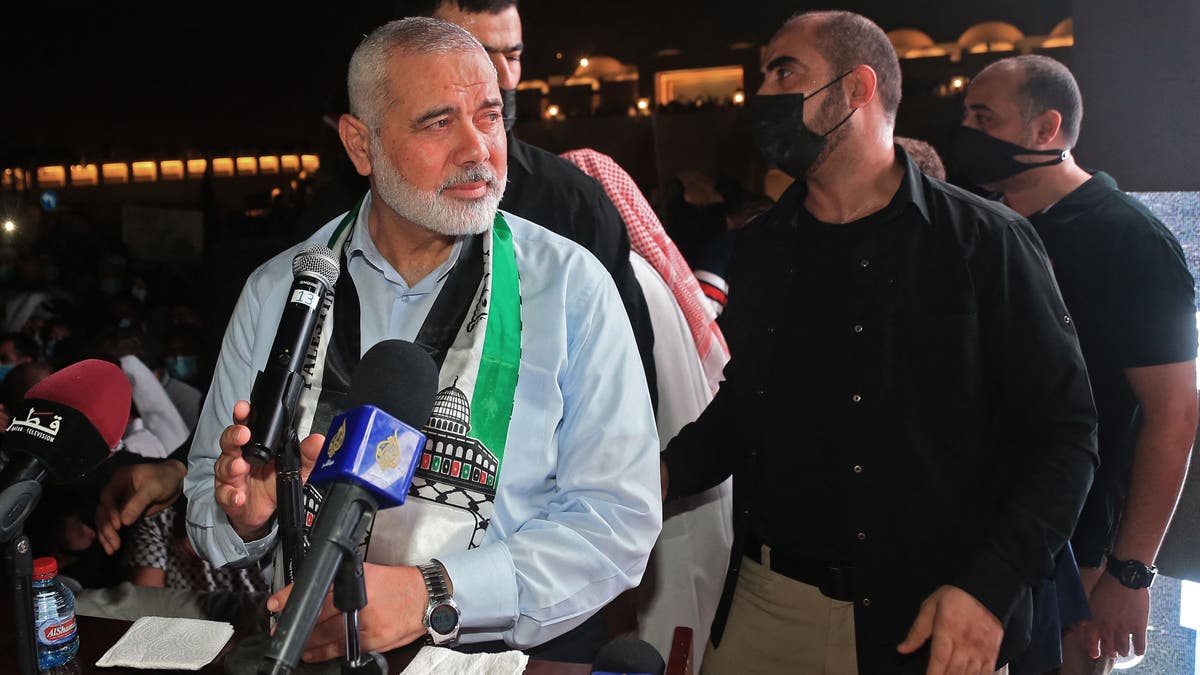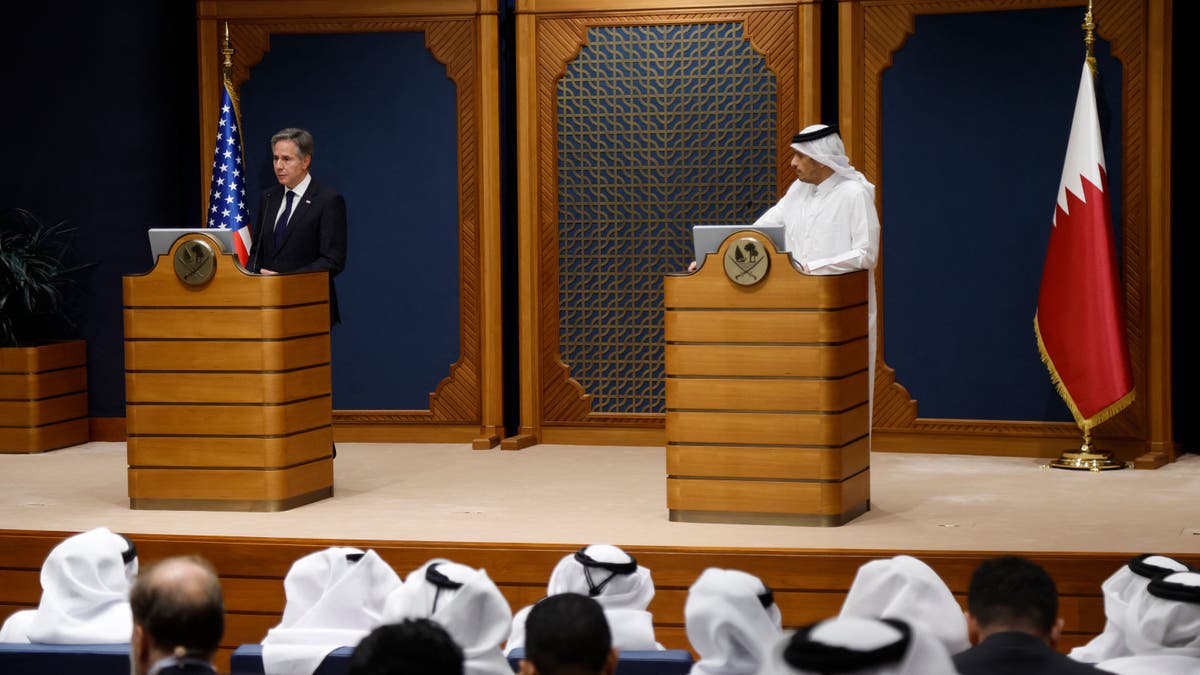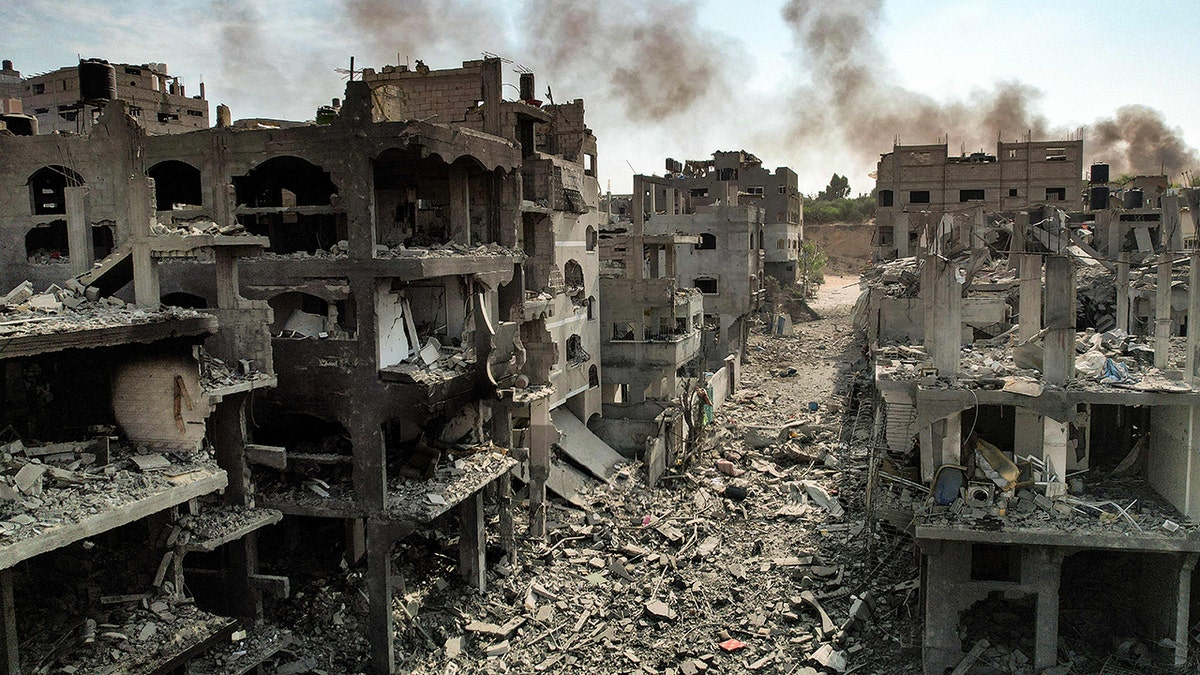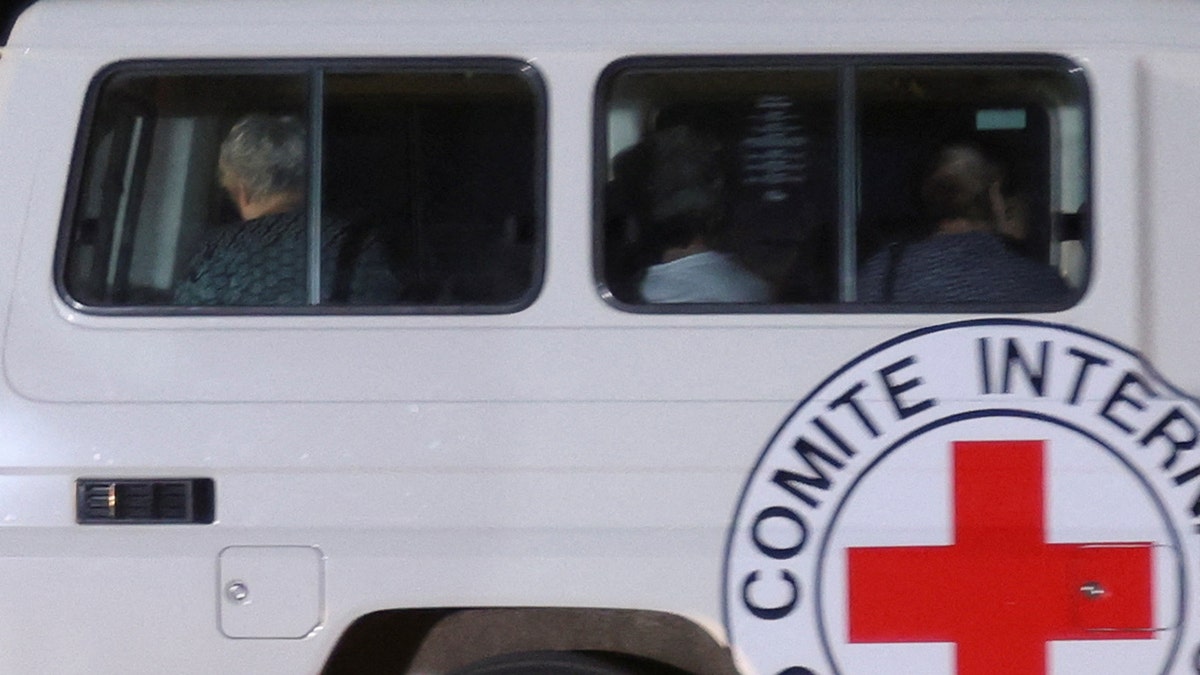The U.S. played a direct role in helping set up the Hamas office in Qatar during the Obama administration, seeking appeasement and soft diplomacy but ultimately failing to control the terrorist group as it festered in Gaza.
“For many years now, both the United States and Israel have been living in a policy fantasy world where we have tolerated Hamas’ existence in Doha and believed that Doha would be a moderating influence,” Richard Goldberg, the coordinator for the Trump administration’s maximum pressure campaign on Iran, told Fox News Digital.
“That thesis was disproven on Oct. 7, so whatever has happened in the last few years, it doesn’t matter because Oct. 7 now stands as the new reality,” Goldberg, also senior adviser at the Foundation for Defense of Democracies, said. “It disproves anybody’s hypotheses that Hamas would somehow become a governing entity, not a terrorist group.”
Qatar’s Ambassador to Washington Meshal bin Hamad Al Thani wrote in a Wall Street Journal op-ed that his government set up the Hamas political office in Doha “after a request from Washington to establish indirect lines of communication” in 2012. He claimed the office “frequently” served in mediation efforts and helped de-escalate conflicts between Israel and the Palestinian territories.
“The presence of the Hamas office shouldn’t be confused with endorsement but rather establishes an important channel for indirect communication,” the minister wrote.
The State Department told Fox News Digital that “Qatar is an influential actor, especially when there are limited conduits of communication with groups like the Taliban and Hamas,” adding that the U.S. continues “actively working with Qatar to secure the release of hostages held by Hamas and Secretary (Antony) Blinken expressed appreciation for their help in this effort” while stressing that Blinken “has repeatedly condemned Hamas’ unconscionable acts of brutality and made clear that there can be no more business as usual with Hamas.”
The Qatari Hamas liaison office has played a role in helping secure the release of 50 hostages in exchange for 150 Palestinian prisoners and a four-day ceasefire. Qatar first announced the agreement once both parties had finalized it last week.
Iranian Foreign Minister Hossein Amir-Abdollahian, left, meets with Hamas Political Bureau Chairman Ismail Haniyeh, center, in Doha, Qatar, on Oct. 31. (Iranian Foreign Ministry / Handout/Anadolu via Getty Images)
Fox News Digital confirmed with a former Obama administration State Department official that the U.S. did request the establishment of the Hamas office, but Goldberg and Steven Simon, a senior director on the National Security Council (NSC) for the Middle East and North Africa during the Obama administration, said the U.S. merely supported the office’s establishment in Doha.
“Hamas was going to go somewhere, and the Qataris wanted to host it,” Simon told Fox News Digital. “Of course, it was discussed with the United States, and we said, ‘go ahead.'”
Goldberg argued that the Doha office was “clearly a policy that was already in line with the Obama administration’s thinking of how to remake the Middle East in a Muslim Brotherhood image, and the Qataris played right into that.”
ISRAEL-GAZA DEAL COULD BE MADE TO RELEASE WOMEN, CHILDREN HOSTAGES
He explained that the Qataris viewed it as taking their “longtime client Hamas” and seeking to “help moderate them and help separate them from the Iranians,” selling it as a “win-win for everybody.”
“Well, 11 years later, we’re paying a very, very high price for that fatal mistake of allowing Doha to sell us on this route, and if we do not finally reverse this policy and shut down Qatari support for Hamas, we are guaranteeing ourselves more and more Oct. 7 [attacks] to come in the future,” Goldberg said.

Hamas Political Bureau Chairman Ismail Haniyeh addresses supporters during a rally in solidarity with the Palestinians outside Qatar’s Imam Muhammad Abdel-Wahhab Mosque in the capital of Doha on May 15, 2021. (Karim Jaafar/AFP via Getty Images)
Simon, who now teaches Middle Eastern studies at the University of Washington and serves as a research fellow at the Quincy Institute for Responsible Statecraft, stressed that the Qataris saw the office as a chance to enhance their standing and role in the Middle East and strengthen relations with the U.S.
“I think there was broad agreement, first of all, that there was no point in trying to block Qatar from hosting these guys… but there might be an advantage to it, and certainly that was the Israeli perspective because the Israelis were using the Qataris as a cut-out to deal with Hamas,” Simon explained.

Secretary of State Antony Blinken, left, and Qatar’s Prime Minister and Foreign Minister Mohammed bin Abdulrahman Al Thani give a statement following their meeting in Doha on Oct. 13. (Karim Jaafar/AFP via Getty Images)
“Hamas leadership needed a place where it had unfettered access to media, to communications and simple infrastructure of care and feeding, and a place, of course, where they would be safe, and Doha was a great place for that,” he lamented. “They would have found a comfortable environment — that the people they dealt with on a day-to-day basis, the Qatari government in particular, would be comfortable dealing with them.”
Simon argued that hosting Hamas also gave Qatar a chance to “poke” its regional rivals, the Saudis and Emirates, “in the eye with a sharp stick” because they stood against the Muslim Brotherhood, out of which Hamas eventually developed.
STATE DEPARTMENT SAYS ‘TRANSITION PERIOD’ MUST FOLLOW ISRAEL-HAMAS WAR
“So it sort of worked in terms of intra-Gulf rivalries… then, it works for Qatar because they, like a lot of these smaller Gulf states, fancies itself a big player, and here was a chance to be a big player because they were a pivotal factor in the policy arena involving Israel and the United States, among others,” he added. “They had leverage. They had some juice, and they kind of liked that.”

Israeli soldiers operate inside the Gaza Strip, amid the ongoing ground operation of the Israeli army against the Palestinian Islamist group Hamas, on Nov. 7. (Israeli Defense Forces/Handout via REUTERS)
Neither Simon nor Goldberg were able to speak about how much and to what degree their respective administrations made use of this office. Fox News Digital also reached out to several other senior State and NSC officials from the Obama and Trump administrations, all of whom either declined to comment or did not respond to a request for comment by the time of publication.
However, both Simon and Goldberg noted that the Oct. 7 attack on Israel has changed the attitudes toward the office and Qatar’s role. Simon pointed out that Qatar still plays an important role as Hamas continues to negotiate to release some of the over 200 hostages still in their possession, but that after the attack “you could see the transformation of attitudes.”

An aerial view of buildings destroyed by Israeli air strikes in the Jabalia camp for Palestinian refugees in Gaza City on Oct. 11. (YAHYA HASSOUNA/AFP via Getty Images)
“They’re in crisis management mode, they’re in damage limitation mode,” he stressed, saying that there will be an effort to “salvage” the value of the office going forward — whatever that might look like.
Goldberg diverged on this point, arguing that the U.S. has to seek an end to the Doha office, using what leverage Washington has with Qatar.
MY PARENTS WERE KIDNAPPED BY HAMAS. THEY ARE NOT A FOOTNOTE TO GAZA WAR, THEY ARE ITS ESSENCE
“There has to be a policy decision that we will no longer tolerate a state sponsor or safe harbor for Hamas, period,” Goldberg argued. “If that is the policy of the United States, the next question is: What are the consequences for any state that violates that policy?”
Among the options he suggested, including a pathway for American victims of the Oct. 7 attack to sue Hamas — along the lines of the pathway provided to 9/11 victim families to sue Saudi Arabia — Goldberg believes that the U.S. should move its air base out of Doha and drop the non-NATO ally status provided to Qatar last year.

A Red Cross vehicle, as part of a convoy believed to be carrying hostages abducted by Hamas militants during the Oct. 7 attack on Israel, arrives at the Rafah border, amid a hostages-prisoners swap deal between Hamas and Israel, as seen from southern Gaza Strip Nov. 24, 2023. (REUTERS/Ibraheem Abu Mustafa)
“We are not stuck there. We have other options in the region,” he said. “I’m sure other Gulf countries who want major strategic defense commitments from the U.S. would happily pay for the relocation of our forces to their country.”
“We should absolutely start that process, no matter what,” he continued. “We do not need to be there. They do not have us over a barrel… the Qataris believe that we are owned by them because we have a base there. They deserve a wake-up call.”
Ambassador Al Thani blasted those who would criticize Qatar for its role in the conflict, arguing that “commentators” have made “untrue” assertions that Qatar has funded and sponsored Hamas.
“These narratives create obstacles for constructive mediation efforts and aim to derail negotiations,” the ambassador wrote in his Wall Street Journal piece. “Almost as soon as the conflict began, Qatar became the target of a sustained disinformation campaign about the nature of our role as a mediator for peace in the region.”
“The release of several hostages over the past week shows that Qatar’s policy of engaging with all sides can yield positive results,” he wrote, referring to the first two hostages released in the conflict last month. “Avoiding the further loss of civilian lives and securing the release of hostages should be the priority for all. Open channels of communication can lead to lasting peace.”
The spokesman for the Qatari embassy in Washington, D.C., and the spokesman for the foreign ministry in Doha did not respond to repeated requests for comment from Fox News Digital by the time of publication.